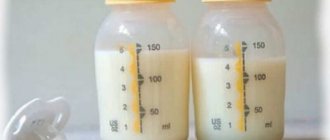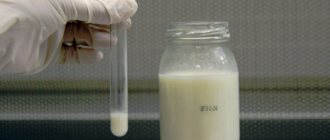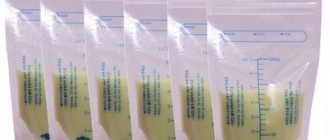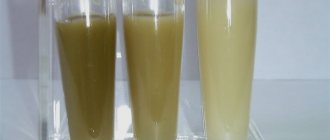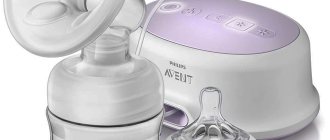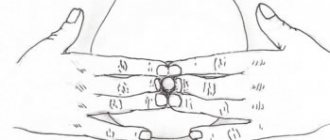A sufficient amount of breast milk for a nursing mother is an almost 100% guarantee of the health and proper development of the newborn. After all, it is breastfeeding that provides the baby with protection from all sorts of troubles, the delivery of vitamins and other useful substances to the tiny body, and the laying of the first “bricks” in the construction of the immune system.
However, many inexperienced mothers are frightened by such a fairly common term as “breast milk burnout.” Precisely the term, because it has long been proven that breast milk cannot burn out.
What folk methods exist for stopping lactation?
Breastfeeding a baby is an invaluable gift of nature, which allows the baby to receive balanced natural nutrition, and the mother not to waste time preparing artificial formulas. The feeding process is physiologically and psychologically beneficial for the woman and the baby. But, as you know, everything is good in moderation; by the age of one year, the child switches to an independent diet, breast milk becomes an obstacle in adapting to new living conditions.
If all processes occur consistently, then weaning and cessation of lactation will become just one of the stages: comfortable and uncomplicated. But in order to avoid mistakes, you should listen to the advice of experienced doctors and achieve a decrease in lactation using folk remedies.
Tips for stopping lactation
After the birth of a child, a woman worries about the appearance of milk, then ensures that it is of the proper quality and its quantity is sufficient to saturate the baby. After time has passed, the question arises of what to do to ensure that breast milk burns out.
In order to stop lactation, a nursing woman needs to do the opposite:
- reduce the calorie content of food;
- do not drink large amounts of liquid;
- limit the consumption of foods that cause thirst;
- feed not according to the principle: “when the child wants,” but according to the hour;
- apply to the breast less often;
- completely eliminate breastfeeding during the day, then in the evening, and lastly stop night feedings;
- remove nipples and bottles from circulation to reduce the sucking reflex, and offer convenient sippy cups and cups.
Important! It is known from experience that to stimulate lactation it is recommended to drink warm beer with sour cream. A nursing mother who cares about the health of the child will not drink beer, but during the completion of the process it is definitely not necessary to drink it, in order to avoid hot flashes.
Pediatricians and experienced mothers believe that the most favorable time to stop feeding is when the child is one and a half years old, any time of year, except for summer.

Can a baby be poisoned by mother's milk?
For a child who has just been born, there is nothing healthier than mother's milk. After all, for proper development, the formation of immunity and all vital systems of the body, breast milk. It is a great source of hormones, antibodies, beneficial bacteria, immunoglobulins, minerals and enzymes. No formula compares to mother's milk.
But a nursing mother is not immune from poisoning, even if she believes that she takes good care of her diet. Sometimes, the source of infection is not at her home, but in the store. You should carefully study the composition and look at the expiration date of the purchased products.
If, after all, the mother experiences poisoning while breastfeeding, then there is no need to think about stopping it. Doctors say that mother's milk contains living organisms that can have a beneficial effect if bacteria enter the child's body during breastfeeding. Some of these substances will bind and remove pathogenic bacteria from the body, while others will strengthen its immunity. The harm to the baby is insignificant when compared with the benefits received.
If you doubt whether it is possible to feed a child with breast milk in case of poisoning, then the answer is definitely positive. Due to the huge amount of carbohydrates and lactose in milk, bifidobacteria develop in the baby’s gastrointestinal tract. This scheme serves as a barrier to the penetration of dangerous microbes and bacteria into the hematopoietic system and mucous membrane of the children's intestines. It follows from this that the baby cannot be poisoned by his mother’s milk if she is poisoned.
Methods for stopping lactation
It matters under what conditions cessation of lactation occurs:
- in calm, natural ones, related to the baby’s age and his transition to a new regime;
- emergency due to a woman’s illness, her haste to go to work, or the need to leave for a long time.
Depending on the reasons, various methods are proposed to stop lactation:
- the physiological method of reducing feedings until they stop completely is the longest in time, but the most natural and comfortable for both mother and child;
- medication is effective when medically indicated, but is aggravated by a negative effect on well-being and the presence of side effects;
- phytotherapeutic - safe, facilitating the process of cessation of lactation and strengthening the weakened female body;
- folk remedies are most often based on the properties of plants, natural products that have proven their effectiveness for a long time.
Medication
The pharmaceutical industry does not stand still, creating drugs that help stop milk production. If you want to use them, it is worth considering that all these drugs were not created with the goal of stopping lactation, but to solve completely different problems.
The list of them is quite extensive:
- parlodel is used for female infertility and loss of male libido;
- bromocriptine is aimed at normalizing the cycle and eliminating hormonal imbalance;
- microfollin is prescribed for diseases of the reproductive system and tumors of the mammary glands;
- acetomepregenol, turinal prevent the threat of miscarriage;
- Norkolut fights gynecological diseases and prevents pregnancy;
- Organometril is recommended for uterine bleeding, breast tumors;
- duphaston - treatment of infertility, normalization of hormonal levels;
- Primolut-nor prevents uterine bleeding, is prescribed for mastopathy;
- Sinestrol treats cancer, reproductive system disorders;
- Utrozhestan solves the problem of progesterone deficiency.
- Bromocamphor - calms the nervous system, inhibiting the action of the central nervous system.
The cessation of lactation in the description of their pharmacological action is not prescribed or is concomitant, with the exception of two drugs: Cabergoline and Dostinex.
All of the above medications are serious prescription drugs that affect the central nervous system. Serious side effects occur: nausea, dizziness, depression, migraine, bleeding, weight gain, liver dysfunction, decreased or increased blood pressure. Therefore, they must be used under strict supervision by the attending physician.
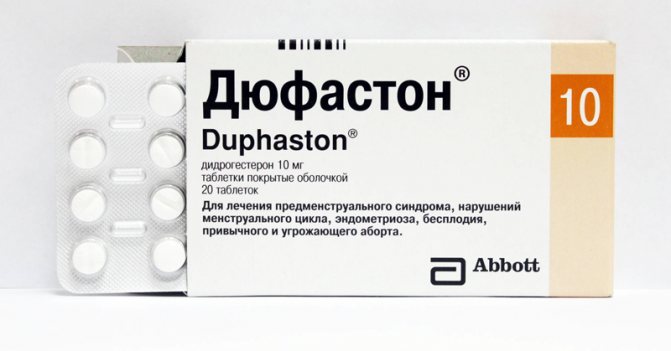
Natural ways
How to make breast milk burn out without pills?
It is necessary to use natural methods, which include:
- The reduction in feedings is gradual, starting from the introduction of the first complementary foods until they are completely stopped;
- Breast tightening, despite its discomfort and non-physiological nature, is effective in emergency cessation of breastfeeding;
- Compresses help to avoid negative consequences and get rid of pain during difficult periods;
- Infusions and decoctions of herbs will help remove excess fluid from the body, increase its immunity, and calm it without an aggressive effect on the central nervous system.
Feeding reduction
Since the process of lactation is a naturally occurring process after the birth of a child, during which the hormonal system is rebuilt and promotes milk production. Gradually, as soon as the child grows up, he begins to consume other foods and other drinks, and therefore, less and less breast milk is required, its production will be reduced, and subsequently reduced to zero. Therefore, cessation of lactation without medication is possible.
First aid and treatment

If your baby exhibits symptoms of food poisoning, in particular, you suspect the presence of a negative reaction of the body to consumed milk, then your task is to do everything to quickly remove toxins from the baby’s body, as well as replenish lost fluid.
- First of all, you need to make sure you drink enough. Give your little one as much fluid as possible, especially water. It will also be effective to drink still mineral water or Regidron to restore the water-salt balance.
- It is necessary to give the little one enterosorbents in accordance with his age. This can be activated carbon (at the rate of one tablet per 10 kg of body weight) or Enterosgel, Polysorb.
- If there is a high temperature, then the baby is given an antipyretic, for example, Panadol or Ibuprofen.
- If there is persistent diarrhea, you can give the child Enterofuril.
- In order to normalize the intestinal microflora, the baby is prescribed Linex or Bifiform, or other probiotics.
- If a child suffers from vomiting, you can give Smecta or Metoclopramide, if age permits.
- If poisoning is caused by pathogenic microorganisms, the doctor may prescribe antibiotics.
- After poisoning, it is important that the baby has bed rest and follows a diet:
- in the first three days after poisoning, it is recommended to completely exclude dairy products from the child’s diet, as they can produce a laxative effect, thereby worsening the disorder if diarrhea has occurred;
- It is important that the baby’s diet for a week and a half after poisoning is represented by unsweetened crackers, cereals with water, baked or stewed vegetables and fruits, boiled minced meat (low-fat varieties), compote or diluted juice (from non-acidic fruits and berries );
- It is recommended to introduce fermented milk products into the diet no earlier than 14 days after the onset of poisoning (starting with kefir);
- Milk should be the last thing to be reintroduced into your regular diet.
What not to do when stopping lactation
Listen to the advice of breastfeeding consultants and then the weaning process will be less traumatic for you and your baby:
- You should not use the breast pulling method during the period of its active development. It's painful, uncomfortable, dangerous.
- Remember - there are no pills or food “from milk”.
- Milk is produced from blood and lymph, so you shouldn’t starve yourself and get dehydrated.
- Do not abandon your child during the period of stopping feeding, you will break your relationship with him.
- Don't say bad words about "breasts".
- Do not shame your child for his attachment, do not make him feel guilty.
- You cannot smear the nipples with a bitter, sour, colored substance: at least the child will be scared, at most, he will develop complexes.
- Do not feel sorry for your child because he is left without a breast. Be firm in your decision to make your baby's life better.
- Do not replace night feedings with artificial drinks: they damage teeth, unlike breast milk.
- Don't wean during stressful times.
Source
Characteristic manifestations
It is necessary to understand that immediately after taking a poor-quality product, symptoms of poisoning may not occur; the process of intoxication of the body may take some time, up to a day. The following signs may indicate that poisoning has occurred:
There are conditions that require emergency medical attention. These include:
- frequent bouts of vomiting;
- diarrhea 10 times a day or more;
- sharp abdominal pain;
- the presence of blood in the stool;
- a significant decrease in the volume of urine excreted.
How does the burnout process work?
Nursing mothers are interested in how breast milk burns out, how long the process takes, and how sensitive it is. Milk production stops when you wean your baby and start feeding him regular food. The body reacts to your action, and the milk gradually disappears (more details in the article: how exactly does breast milk disappear in women?). It also happens that milk stops coming for other reasons. Stressful situations, illness, poor nutrition, aggressive medications stop milk production, even if you did not plan to wean your baby.
The starting signal for the disappearance of milk is a decrease in the amount of two hormones: prolactin and oxytocin. Hormone levels drop when the number of feedings decreases. By reducing them, you reduce the intensity of lactation and provoke its complete cessation. No doctor will give you an exact answer to the question of how long it takes for breast milk to burn out. For each breastfeeding woman, this process is purely individual.
The cessation of production can occur in 5-7 days or last for two months. Characteristic symptoms:
- heaviness and pain in the chest;
- temperature increase;
- general weakness, malaise;
- lumps formed in the chest.
The process of cessation of lactation starts when the frequency of breastfeeding of the baby decreases - the body perceives such a step as a signal for the need for natural termination of breastfeeding.
Prevention
If the mother is poisoned by specific pathogens (botulism, salmonellosis, shigellosis), you need to consult a doctor about preventing poisoning in the child. Your doctor may recommend expressing milk, sterilizing it, and bottle feeding.

Avoid work areas with strong smells of gasoline, kerosene or acetone. Moreover, do not store such solutions at home.
Such an important and sensitive period in the life of every woman as breastfeeding can be overshadowed by food poisoning. No matter how much a mother monitors her diet, factors beyond her control occur. The basis for poisoning are pathogenic bacteria, microbes and viruses that were able to penetrate the body with various food products of dubious quality.
What to do if illness or stress causes burnout?
Of course, there are different diseases, some of them serve as good reasons for stopping lactation. If you feel like you have a cold, don’t rush to wean your baby. Lack of nutrition can weaken the baby's immune defense and lead to infection with viruses. Use a mask or cotton-gauze bandage as protection, but continue to breastfeed your baby as usual.
Worsening of the condition with increasing temperature requires seeking medical help. The doctor will select the necessary medicine that will bring down the temperature, but will not affect lactation and will not harm the baby. You can safely take Paracetamol and resort to natural folk remedies. It is useful to increase the amount of fluid you drink. You can read more about the measures that need to be taken if your mother has a cold here.
Mastitis is considered one of the dangerous diseases leading to the disappearance of milk. Its treatment cannot be started, so it is better to prevent the disease. Check your breasts daily for milk stagnation, perform a light massage of the mammary glands, keep your nipples and breasts clean, and apply softening compresses. Treatment methods for mastitis are the competence of the doctor.
Giving birth and feeding a child changes the mother's lifestyle. She often experiences stress, depression, and overwork. All these negative factors affect lactation, but do not radically solve the problem. There is a risk of stagnation. You should not take sedatives immediately, they can worsen the situation. Read our other reviews on how to restore normal lactation.
Possible complications

In most cases, this type of departure does not have serious consequences and does not require hospitalization. However, they can also have more serious manifestations.
- Any type of poisoning is especially dangerous for infants, as they can very quickly develop dehydration and hypovolemic shock.
- Acute heart failure as a result of potassium-magnesium imbalance.
- The onset of toxic shock.
It is necessary to understand that children are more susceptible to complications:
- having chronic diseases;
- prone to allergies;
- babies of the first year of life;
- premature babies.
Natural end of lactation
The moment to stop breastfeeding occurs either by the mother’s decision or because the baby is ready to receive adult food. It is difficult to accurately determine the exact date of complete cessation of lactation. Its noticeable decrease occurs on days 5-7, but residual discharge can last up to six months.
It is safe for health to stop lactation during breastfeeding using actions that imitate a natural stop:
- Wear a tight, but not pressing bra during the period scheduled for completion of lactation, without removing it at night.
- Apply a cold compress to your breasts to relieve burning, pain, and swelling of your nipples. Take a towel, wrap an ice pack in it, and apply it to the mammary gland.
- Use pumping. Do it regularly, manually or with special devices, but do not express your breasts completely (we recommend reading: how to express milk manually?). The main thing is to remove the feeling of fullness in the mammary gland.
- Cold leaves of white cabbage will help relieve pain. Apply the sheet to your chest, secure with a bandage or bra, and hold until the condition improves.
- Make infusions of parsley, sage, mint. Herbal infusions will reduce milk production.
- If you find lumps, consult your doctor. You may have lactostasis (for more details, see the article: symptoms of lactostasis in breastfeeding women). If the diagnosis is confirmed, express the breast completely, then the lump will go away. Once you have dealt with it, resume incomplete pumping.
Artificial methods of ending lactation
The question of how to make milk disappear arises for a nursing woman against the backdrop of certain problems. The reasons may vary. What does medicine offer to make breast milk disappear? Our review of some medications will tell you which treatment to choose and how to get rid of breast milk using medications.
- Bromocriptine mesylate is a drug still used in the countries of the former USSR. Produced under the trademarks Krypton, Parlodel, Bromlactin. Suppresses the production of one of the hormones, prolactin, involved in the production of breast milk. US doctors do not recommend the drug because it has many side effects (vomiting, convulsions, vasoconstriction, hypotension, stroke). Decide to take the drug only after consulting your doctor.
- Cabergoline (brand name Dostinex) is an alternative to the previous drug, which causes milk to burn out. Characterized by similar side effects (nausea, dizziness, nosebleeds, headaches, orthostatic hypotension). The drug is used in some European countries. Discuss your decision to take it thoroughly with your doctor. Take into account possible poor health, which prevents proper care of the baby.
- Grandma's advice on breast ligation is stupid and dangerous. An unreasonable action does not contribute to milk loss, but can lead to the formation of mastitis and lactostasis.
- A temporary diet or reduction in diet is not the best way to stop milk production. Remember - it will not disappear unless you bring yourself to complete exhaustion, and this is fraught with serious problems.
- Reducing fluid intake will also not give a positive result. Your trips to the toilet will be reduced, but your breasts will not stop swelling. To stop lactation, 10% dehydration of the body must be achieved, after which general malaise and exacerbation of chronic diseases may occur.
Possible reasons
The following factors can lead to poisoning:
- the milk was obtained from cows that have an inflammatory process in the body, for example, suffering from mastitis;
- a situation where livestock is poorly cared for on a farm;
- production standards were violated;
- the milk was stored inappropriately;
- the presence of disease in personnel who care for livestock.
Often, poisoning is caused by the presence of staphylococcus in milk, but other pathogenic microorganisms, including opportunistic ones, can also occur. Bacteria, penetrating the digestive system, begin an active reproduction process, accompanied by the production of toxins, which, in turn, provoke an inflammatory process in the intestinal mucosa. As a result:
- digestive problems;
- difficulty absorbing nutrients;
- development of gastronomic syndrome;
- penetration of toxins into the bloodstream, leading to complete intoxication of the body.
Some parents are interested in the question: is it possible to be poisoned by breast milk?
- An allergic reaction may occur if the mother has eaten a product that is not tolerated by the child’s body.
- Poisoning itself can also occur if a woman, leaving the baby with relatives, expresses milk, which the child consumes only after some time. In such a situation, there is a risk that, for example, milk could be left in a warm place for a sufficiently long period of time, as a result of which pathogenic microflora could also begin to develop in it. Or the microorganisms could be in a container that was not sufficiently washed or sterilized, after which pathogenic microorganisms began to be active in breast milk.


